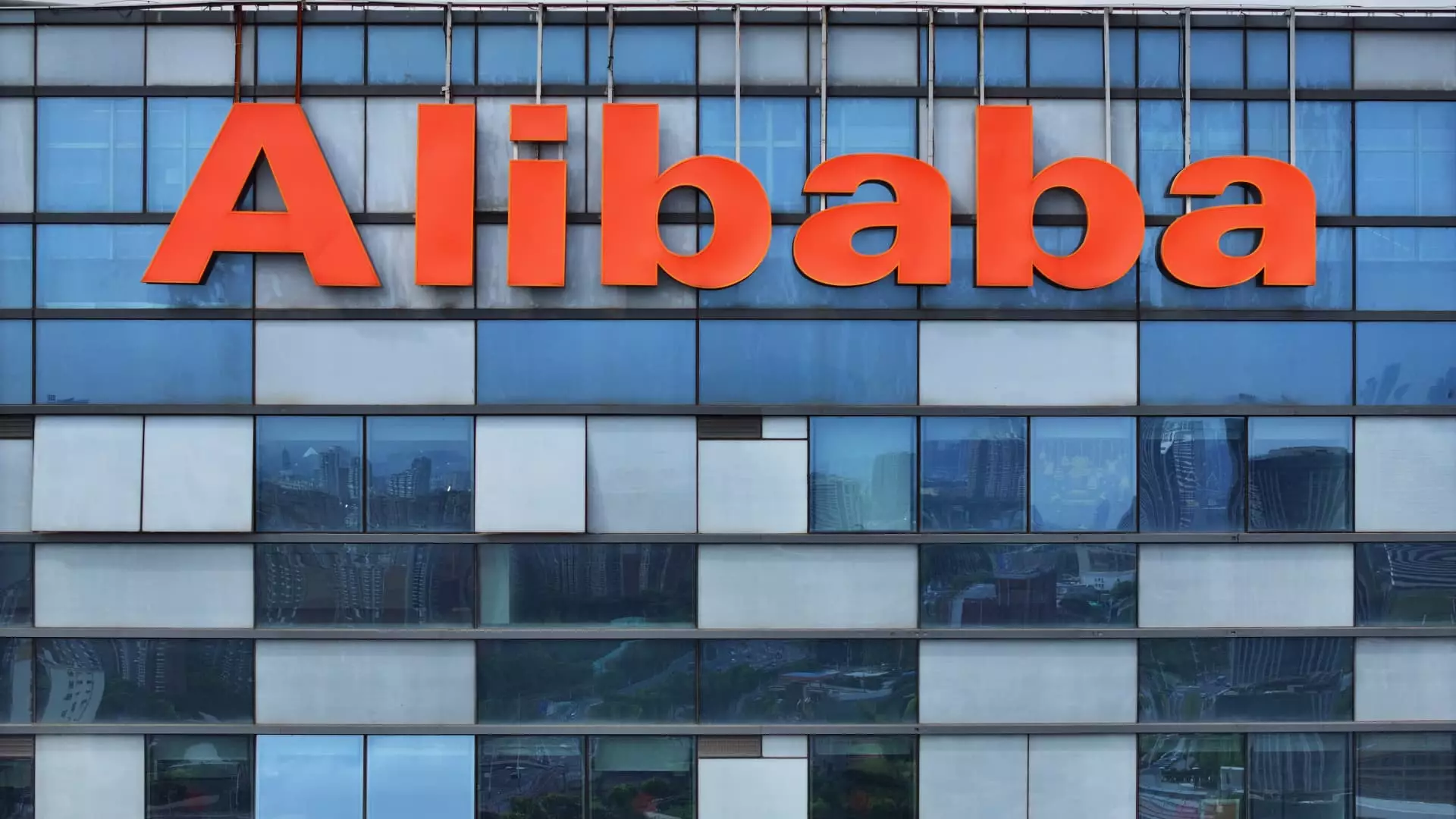Alibaba Group Holding Limited is experiencing a renaissance in its market performance, corresponding with the release of its latest quarterly results. The tech giant’s shares saw an impressive leap of nearly 11% in Hong Kong trading, settling for a robust 9.18% increase by the close. This uptick in share price signals a growing optimism among investors, predominantly fueled by notable growth within Alibaba’s cloud intelligence and e-commerce sectors. These developments have attracted the attention of financial analysts and corporations alike, leading to revisions in market expectations.
Nomura, a prominent financial services group, noted that the bullish sentiment surrounding Alibaba is likely to persist into the first half of 2025. Driven by strategic government incentives for trade-in programs, domestic e-commerce is positioned for sustained growth, especially as the Chinese government has committed to a significant fiscal injection aimed at consumer stimulus. Specifically, the allocation of 300 billion yuan (approximately $41.5 billion) for ultra-long special government bonds is expected to reinvigorate the trade-in and equipment upgrade policies. This affirms Alibaba’s place in a recovering economic landscape, highlighting the potential for stable profitability in the burgeoning e-commerce market.
In addition to its e-commerce triumphs, Alibaba’s advancements in artificial intelligence (AI) are noteworthy. An increasing number of Chinese tech firms are entering the AI space, but Alibaba seems to be pulling ahead with its launch of the Qwen 2.5-Max—an AI foundation model that aims to cater to burgeoning demand in AI inference. In fact, this domain now constitutes a staggering 70% of new demand for the company, showcasing a significant shift in both strategy and resource allocation.
Barclays has underscored the importance of Alibaba’s upcoming era of investment, indicating that the next three years could witness the most concentrated capital allocation towards AI and cloud infrastructure in the company’s history. This potential investment is projected to eclipse the cumulative $270 billion spent over the past decade, revealing a commitment to positioning itself as a leader in both AI and cloud technologies. Such a strategy not only reflects Alibaba’s ambition but also places it in direct competition with other major players in the tech sector—heightening the stakes for ongoing innovation.
Alibaba’s journey has not been without its challenges. Following a rigorous regulatory crackdown initiated by Beijing in 2020, the company faced significant setbacks that influenced its market trajectory. The abrupt cancellation of Ant Group’s initial public offering was a turning point, prompting questions about the viability of Alibaba’s future operations. However, recent developments indicate a shift in the regulatory environment, particularly following a rare public appearance by Jack Ma, Alibaba’s founder.
In a meeting with President Xi Jinping, private enterprises were urged to “display their abilities” and regain confidence within the evolving business landscape. This interaction suggests a potential thaw in relations between the government and the private sector, possibly signaling a more favorable regulatory climate for Alibaba and its peers. Positive sentiment from the highest levels of government could provide crucial reassurance for investors, further driving stock performance.
The future outlook for Alibaba appears promising as domestic e-commerce gains momentum and the company fortifies its AI and Cloud capabilities. Senior equity advisor Vey Sern Ling of UBP reflects this sentiment, emphasizing a wave of optimism across the wider Chinese technology sector. Following the emergence of AI startups like DeepSeek, which are challenging established norms within the U.S. tech ecosystem, we’re witnessing a transformation in public perception and investment strategies.
As investors refine their expectations based on Alibaba’s financial performance—marked by remarkable net income and revenue figures—it’s clear that the company’s ability to innovate and adapt is as critical as ever. With significant investments on the horizon, many eyes will remain fixed on Alibaba as it seeks to capitalize on this pivotal moment, showcasing how it can balance regulatory challenges with aggressive growth strategies to maintain its status as a dominant player in the global marketplace.

Leave a Reply